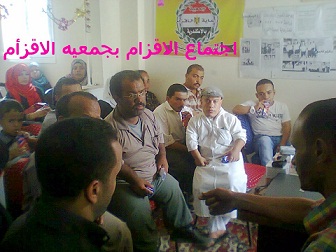Two very dissimilar events with contradictory results took place recently in Iraq, practically simultaneously: the withdrawal of five Sunni ministers from the so-called unity government of Nouri al-Maliki and the victory of the Iraqi national soccer team over Saudi Arabia for the Asian Soccer Cup. The first is indicative of the battle for power being waged among the factions present in that troubled country, while the second succeeded precisely because those factions were able to overcome their deep-seated differences and work towards a common goal. The politicians could learn a valuable lesson from the latter.
The Iraqi national soccer team s victory was all the more remarkable in that its adversary in the final match for the Asian soccer cup was Saudi Arabia, the three-time winner and holder of the Cup, also the team favoured to win the competition by all observers. And this happened to a team from a country torn asunder by war and violence since the US-led invasion of March 2003.
Jorvan Vieira, the Brazilian coach signed on by the Iraqi team shortly before the final game, has spoken openly – in an interview published by Clarin, an Argentine newspaper – of his amazement on observing the level of animosity among the players, especially between Sunni and Shiite Iraqis. The team was in total disarray on his arrival. Many players didn t even talk to each other, and for the first two weeks, things were extremely difficult for him.
When asked how he managed to create a climate of civility among the Sunni, Shiite, Kurdish and Christian players, sufficient for the team to pull together, Vieira replied: What I did was talk with them every day and tell them that unless they decided to work together they wouldn t get anywhere and that they would leave the Iraqi people without any happiness. Every time two players had a problem, I took them into a room and didn t leave that room until the problem was overcome.
After winning the semi-final match against South Korea, hundreds of thousands of Iraqis took to the streets to celebrate. The demonstrations were interrupted by two suicide car bombings resulting in the death of 50 people and 135 wounded. A cause for celebration had become a cause for mourning.
The day afterwards was very difficult for us, remarked Vieira. We all cried on watching the TV images of the tragedy and we thought if it really was worthwhile to win, since if we won people died and if we lost people also died.
According to Vieira, it was despair that gave the team the strength needed to play and win the final game. The players had learned that a mother who had lost her son during the celebrations had spoken of the happiness of her boy s final moments thanks to their team s victory. It made them think we have to win this final at any price and offer this triumph to that mother.
For a few moments, the Iraqi people were able to forget that they were living in a country ravaged by war and senseless killing. Their team s victory gave them a sense of hope, an example of the possibilities ahead if only they worked together, just as the team had done in order to triumph.
It can be argued that this was only a temporary situation. May the Iraqi leaders, however, make it a lasting one, one that will restore a sense of humanity to their ravaged country.
César Chelalais a writer on human rights issues. He is also a co-winner of an Overseas Press Club of America award for an article on human rights. This article is distributed by the Common Ground News Service (CGNews) and can be accessed at www.commongroundnews.org.
